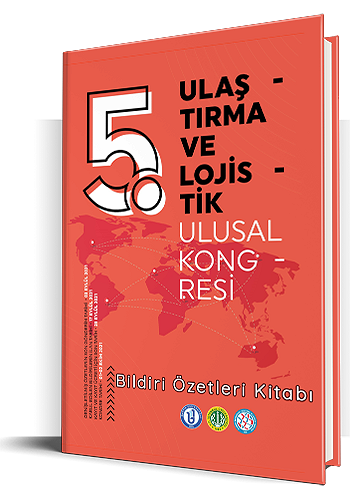
Ulaştırma ve Lojistik Kongreleri
- Türkçe
- Özet
- 2021
Lojistik Performansın Türkiye’nin İhracat Ortaklarının İthalatı Üzerindeki Etkisi
Mustafa Emir Yücel
Arş. Gör. Dr., Bartın Üniversitesi, Bartın, Türkiye
Anahtar Kelimeler: Panel Veri Analizi, Lojistik Performansı, Dış Ticaret
Impact of Logistics Performance on Imports of Turkey's Export Partners
Developments in transportation, technological developments and rapid development in information and communication technologies have resulted in faster globalization of the world economy. With the increase in globalization, foreign trade also plays an important role in the economic structure of countries. Foreign trade contributes to economic growth by increasing both the production possibilities and resource efficiency of countries. This view that countries can increase welfare by trading was put forward by David Ricardo (1870) about two centuries ago and has been supported by many studies until today. Export, one of the foreign trade components, has a positive effect on GDP and is one of the determinants of growth. The positive correlation between exports and growth has been revealed in academic studies. The ratio of exports to imports in Turkey has been around 70% in the last 10 years. An increase in this ratio leads to higher export volumes, provided that import dynamics remain constant. For this reason, in the study to be conducted, the countries with which Turkey exports the most between 2007 and 2020 are included in the sample group. The transportation and logistics sector plays an important role in the growth and development of a country by facilitating foreign trade opportunities. Due to this feature, the development of the logistics sector in the countries where Turkey's export partners import will be examined within the scope of the analysis. In the literature review, no study was found that examines the importance of logistics performance in the import dynamics of the countries to which Turkey exports. Therefore, the results will encompass important policy recommendations. The empirical part of the study will be examined within the scope of the model below. Ii,t = β1 Xi,t + β2 logistici,t + ε i,t (1) Where, Ii,t demonstrate the imports of country i, one of Turkey's export partners, in year t. The logistics variable, logistici,t , shows the average of the logistics performance indices of the countries from which country i imports. In the equation ε i,t demonstrate the error term with independent and identical distribution. The matrix Xi,t includes control variables which effects on imports of countries. This matrix includes the GDP per capita of the importing country, the trade liberalization rates of the countries, the average distance between the countries and the population growth rates of the countries. The natural logarithm of imports and GDP per capita will be taken. In the empirical analysis, panel data estimation method was adopted by using 6 years data (2007,2010,2012, 2014, 2016, 2018) belonging to 20 countries (cross-section). The sample selection consists of a pooled data structure, as the logistics performance index (LPI) data is only available for the above 6 years based on surveys by the World Bank and the Turku School of Economics. Since T=6 and N=20 in the analysis, it would not be appropriate to use dynamic estimation methods such as GMM (Generalized Moments Method) or non-linear estimation methods. For this reason, after the necessary tests are done, the analysis will be made by choosing the appropriate one among the static panel data estimation methods, fixed effects, random effects or pooled least squares methods.Keywords: Logistics Performance, Panel Data Analysis, Foreign Trade


Bu çalışma, kullanan kişilere orjinal çalışmadan alıntı yaptıkları sürece, çalışmayı dağıtma, değiştirme ve üzerine çalışma hakkı tanıyan Attribution 4.0 International (CC BY 4.0) lisansı ile lisanslanmıştır.
İletişim
İstanbul Üniversitesi Ulaştırma ve Lojistik Fakültesi
İ.Ü. Avcılar Kampüsü 34320 Avcılar/İstanbul
ulk@istanbul.edu.tr
+ 90 (212) 440 00 00 - 19200


